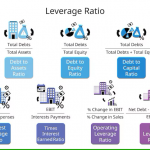In today’s business landscape, Environmental, Social, and Governance (ESG) factors are no longer considered optional. They have become a crucial part of decision-making processes, especially in the realm of mergers and acquisitions (M&A). Companies are recognizing the need to align themselves with ESG principles to not only meet regulatory requirements but also address stakeholder concerns and enhance their reputation.
The rise of ESG in M&A deals is transforming the traditional approach to evaluating investment opportunities. Investors and acquirers are now looking beyond financial performance to assess a company’s ESG practices and its impact on the environment, society, and governance.
With mounting pressure from consumers, employees, and regulatory bodies, it is no surprise that ESG considerations have gained prominence in M&A negotiations. This growing emphasis on sustainability, social responsibility, and ethical governance is reshaping the M&A landscape and driving a shift towards more responsible, long-term investment strategies.
What is ESG?
ESG, or Environmental, Social, and Governance, has become a vital framework for measuring a company’s sustainability and societal impact. In today’s world, where conscious consumerism and ethical investments are gaining traction, ESG has emerged as a guiding principle for businesses.
Understanding Environmental Factors in ESG
When it comes to ESG, the environmental aspect plays a crucial role. Companies are increasingly being evaluated based on their efforts to minimize their ecological footprint and support sustainable practices.
This includes reducing greenhouse gas emissions, conserving resources, and adopting renewable energy sources. Implementing environmentally friendly policies not only benefits the planet but also enhances a company’s reputation and reduces operational costs. By effectively managing environmental factors, companies can position themselves as responsible stewards of the environment and gain a competitive edge.

Another important aspect of environmental factors in ESG is supply chain management. Companies are expected to ensure that their suppliers adhere to sustainable practices and ethical standards. This includes assessing suppliers’ environmental impact, labor practices, and compliance with regulations. By promoting sustainability throughout their supply chains, companies can contribute to a more sustainable and resilient global economy.
Overall, understanding and addressing environmental factors is a crucial part of ESG integration. By prioritizing sustainability and taking proactive measures to reduce their environmental impact, companies can demonstrate their commitment to a greener future.
The Importance of Social Factors in ESG
Social factors encompass a company’s treatment of employees, suppliers, and the communities it operates in. In the context of ESG, social responsibility is about promoting fair and equitable practices, fostering diversity and inclusion, and ensuring the well-being of all stakeholders.
One of the key aspects of social factors is employee welfare. Companies that prioritize their employees’ well-being and development tend to attract and retain top talent. This includes providing a safe and inclusive work environment, offering competitive compensation and benefits, and investing in employee training and development programs. By prioritizing employee welfare, companies can enhance productivity, employee satisfaction, and overall organizational performance.
Furthermore, social responsibility extends beyond the workplace. Companies are expected to engage with the communities they operate in and contribute positively to society. This can be done through various initiatives such as philanthropy, volunteering, and supporting local businesses. By actively participating in social causes, companies can build stronger relationships with their communities and enhance their brand reputation.
Social factors are integral to ESG as they reflect a company’s commitment to fairness, inclusivity, and societal well-being. By prioritizing social responsibility, companies can create a positive impact on their employees, communities, and society at large.
The Role of Governance in ESG
Governance is a fundamental pillar of ESG and focuses on the accountability, transparency, and ethical conduct of a company’s leadership. Good corporate governance ensures that decision-making processes are fair, transparent, and aligned with the interests of stakeholders.
One of the key aspects of governance in ESG is board composition and diversity. Companies are expected to have a diverse board of directors that represents different perspectives and experiences. This diversity promotes better decision-making, reduces groupthink, and enhances corporate performance. Additionally, transparent board structures and effective oversight mechanisms are crucial for maintaining trust and confidence among investors and stakeholders.
Ethical conduct and responsible business practices are also paramount in governance. Companies are expected to adhere to ethical standards, comply with regulations, and promote a culture of integrity throughout the organization. This includes implementing robust anti-corruption measures, ensuring accurate and transparent financial reporting, and prioritizing ethical behavior at all levels of the company.
In summary, governance plays a vital role in ESG by ensuring that companies are managed ethically, transparently, and in the best interests of all stakeholders. By upholding strong governance practices, companies can build trust, attract investment, and create long-term value.
ESG Investing and its Benefits
ESG investing, also known as sustainable investing or socially responsible investing (SRI), is a growing trend in the investment world. It involves considering ESG factors alongside traditional financial analysis when making investment decisions.
There are several benefits of ESG investing. Firstly, it allows investors to align their investment portfolios with their values and beliefs. By investing in companies that prioritize ESG practices, investors can support sustainable and responsible businesses.
Secondly, ESG investing is believed to contribute to better long-term financial performance. Numerous studies have shown a positive correlation between strong ESG performance and financial returns. Companies that effectively manage ESG risks and opportunities are more likely to outperform their peers in the long run.
Furthermore, ESG investing helps mitigate risks. By considering ESG factors, investors can identify companies that are exposed to potential risks such as environmental liabilities, regulatory non-compliance, or reputational damage. By avoiding these risks, investors can protect their portfolios and enhance their risk-adjusted returns.
Lastly, ESG investing fosters innovation. Companies that prioritize sustainability and social responsibility are more likely to invest in research and development, leading to innovative products and services. By investing in these companies, investors can support innovation and contribute to the development of a more sustainable economy.
ESG investing offers several benefits, including the alignment of investments with values, potential financial outperformance, risk mitigation, and the promotion of innovation. As more investors recognize the importance of ESG factors, the demand for sustainable investments continues to grow.
ESG in the Financial Industry
The financial industry plays a crucial role in promoting and facilitating ESG integration. As stewards of capital, financial institutions have the power to drive sustainable business practices and influence companies’ ESG performance.
One of the key ways the financial industry promotes ESG is through responsible investment practices. Many asset managers and institutional investors have adopted ESG integration into their investment processes. This includes considering ESG factors when evaluating investment opportunities, engaging with companies on ESG issues, and exercising their voting rights to promote positive change. By incorporating ESG into investment decisions, financial institutions can allocate capital to companies that demonstrate sustainable and responsible practices.
Financial institutions also play a crucial role in ESG risk management. They assess the financial implications of ESG risks such as climate change, regulatory changes, and reputational damage. By integrating ESG risk management into their operations, financial institutions can protect their investments and contribute to the stability of the financial system.
Furthermore, the financial industry is increasingly focusing on ESG reporting and disclosure. Regulators are mandating greater transparency and consistency in ESG reporting, and financial institutions are expected to comply with these requirements. By providing reliable and standardized ESG information, financial institutions enable investors and stakeholders to make informed decisions.
In summary, the financial industry has a significant role to play in promoting ESG integration. By adopting responsible investment practices, managing ESG risks, and improving ESG reporting, financial institutions can drive positive change and contribute to a more sustainable economy.
ESG Regulations and Standards
Regulations and standards are vital for ensuring consistent and transparent ESG practices across industries. They provide a framework for companies to assess and disclose their ESG performance, allowing stakeholders to compare and evaluate companies’ sustainability efforts.
Several regulatory bodies and organizations have developed ESG regulations and standards. These include government agencies, stock exchanges, and industry associations. For example, the European Union has introduced the Sustainable Finance Disclosure Regulation (SFDR) to enhance transparency in ESG reporting. Stock exchanges such as the London Stock Exchange and NASDAQ have also introduced listing requirements related to ESG disclosure.
In addition to regulations, industry-specific standards and frameworks have emerged. These standards provide guidance on ESG reporting and performance indicators. Examples include the GRI Standards, SASB Standards, and TCFD Recommendations. By following these standards, companies can ensure that their ESG reporting is reliable, comparable, and aligned with industry best practices.
However, the landscape of ESG regulations and standards is evolving rapidly. Companies need to stay informed about the latest developments and adapt their practices accordingly. This includes actively participating in industry discussions, engaging with regulators, and seeking external expertise when needed.
ESG regulations and standards are essential for ensuring consistency, transparency, and accountability in ESG practices. By complying with these regulations and adopting industry standards, companies can build trust, enhance their reputation, and contribute to a more sustainable future.
Understanding the importance of ESG factors in business transactions
ESG factors encompass a wide range of considerations that collectively evaluate a company’s environmental impact, social responsibility, and governance practices. These factors are not only important for ethical reasons but also significantly impact a company’s long-term success and financial performance. By integrating ESG considerations into M&A deals, companies can mitigate risks, enhance their reputation, and create long-term value.
When evaluating potential investment opportunities, traditional financial metrics alone may not provide a comprehensive view of a company’s overall performance. ESG factors offer a deeper understanding of a company’s impact on the environment, its relationships with stakeholders, and the effectiveness of its governance structure.
Investors and acquirers are realizing that companies with strong ESG practices are better positioned to navigate regulatory changes, attract top talent, and build resilient supply chains. Moreover, studies have shown that companies with robust ESG performance tend to outperform their peers in terms of financial returns, making them attractive targets for M&A transactions.
The impact of ESG on M&A deal valuation
ESG considerations have a significant impact on the valuation of companies involved in M&A transactions. Traditionally, financial metrics such as revenue, profitability, and growth potential have been the primary drivers of deal valuation. However, as the importance of ESG factors grows, they are increasingly factored into the valuation process.
Investors and acquirers now consider a company’s ESG performance as an indicator of future risks and opportunities. A company with strong ESG practices may be seen as more resilient and less exposed to regulatory, reputational, and operational risks. This perception can lead to a higher valuation and a lower cost of capital for the target company.
On the other hand, companies with poor ESG performance may face increased scrutiny and potential liabilities, which can negatively impact their valuation. This shift in valuation dynamics is prompting companies to prioritize ESG practices and align their operations with sustainable and responsible principles.
Incorporating ESG considerations in due diligence
Due diligence is a critical phase in any M&A transaction, and it provides an opportunity to assess a target company’s ESG practices and identify potential risks and opportunities. Integrating ESG considerations into the due diligence process allows acquirers to gain a deeper understanding of the target company’s sustainability performance and evaluate its alignment with their own ESG objectives.

During the due diligence phase, acquirers should review relevant ESG documentation, such as environmental impact assessments, sustainability reports, and governance policies. They should also conduct site visits and engage with key stakeholders to validate the target company’s claims and identify any undisclosed ESG-related issues.
By conducting thorough ESG due diligence, acquirers can identify potential risks and liabilities associated with a target company’s ESG practices. This information can then be used to negotiate deal terms, including the consideration of potential costs related to remediation efforts or sustainability initiatives.
ESG integration in deal structuring and negotiation
ESG considerations should not be limited to the due diligence phase but should also be integrated into the deal structuring and negotiation process. Companies that prioritize ESG factors in their M&A deals are better positioned to create sustainable value and align their operations with long-term strategic goals.
During deal structuring, companies should identify specific ESG-related goals and targets that can be incorporated into the transaction agreements. These goals may include commitments to reduce carbon emissions, enhance diversity and inclusion, or improve governance practices. By explicitly outlining these goals in the deal agreements, companies can ensure accountability and provide a framework for monitoring and reporting progress.
Negotiating ESG-related provisions in M&A deals requires a collaborative approach between the acquirer and the target company. Companies should engage in open and transparent discussions to align their ESG objectives and address any potential conflicts. This collaborative approach not only enhances the likelihood of successful integration but also fosters a positive culture and shared values between the merging entities.
ESG reporting and disclosure requirements in M&A transactions
As the importance of ESG factors in M&A transactions grows, there is an increasing demand for transparent and standardized ESG reporting and disclosure. Regulatory bodies, investors, and other stakeholders are calling for greater transparency and accountability in reporting ESG performance.
Companies involved in M&A transactions should consider the reporting and disclosure requirements of their respective jurisdictions and industry sectors. They should aim to provide comprehensive and reliable ESG information that is in line with recognized reporting frameworks, such as the Global Reporting Initiative (GRI) or the Sustainability Accounting Standards Board (SASB) standards.
Accurate and transparent ESG reporting not only enhances a company’s reputation but also helps to build trust with stakeholders. It provides investors and acquirers with the necessary information to evaluate a company’s ESG performance and make informed decisions. Additionally, it enables companies to benchmark their performance against industry peers and identify areas for improvement.
Challenges and risks associated with ESG integration
While the integration of ESG considerations in M&A deals offers numerous benefits, it is not without challenges and risks. Companies must navigate potential hurdles to ensure successful integration and maximize value creation.
One of the challenges is the lack of standardized ESG metrics and reporting frameworks. Companies may struggle to gather reliable and comparable data, making it difficult to assess and compare ESG performance across different entities. This challenge highlights the need for consistent and transparent reporting standards that enable meaningful comparisons and benchmarking.
Another challenge is the potential for “greenwashing” or the misrepresentation of a company’s ESG practices. Acquirers must be diligent in verifying the accuracy and authenticity of a target company’s ESG claims. Thorough due diligence and engagement with key stakeholders can help identify any discrepancies or misleading information.
Additionally, integrating ESG considerations may require significant investments in infrastructure, technology, and talent. Companies must carefully assess the costs and benefits associated with ESG integration and ensure that the investments align with their strategic goals and financial capabilities.
Conclusion: The future of ESG in M&A deals
The future of ESG in M&A deals looks promising, as companies continue to recognize the value and importance of sustainable and responsible business practices. Regulatory bodies are increasingly focusing on ESG issues, driving companies to prioritize these considerations in their operations and transactions.
As ESG integration becomes more prevalent, we can expect to see further standardization of reporting frameworks and metrics. This standardization will enable better comparability and benchmarking, facilitating informed decision-making and promoting transparency in the market.
Moreover, technological advancements, such as data analytics and artificial intelligence, will play a crucial role in enhancing ESG integration efforts. These technologies can help companies collect, analyze, and report ESG data more efficiently, enabling better decision-making and risk management.
In conclusion, the rise of ESG in M&A deals is transforming the way companies evaluate investment opportunities and create value. ESG considerations are no longer optional but essential for long-term success and reputation.
By understanding the importance of ESG factors, incorporating them into due diligence and deal structuring, and transparently reporting ESG performance, companies can drive sustainable value creation and address the evolving needs of stakeholders. The future of M&A deals lies in embracing ESG principles and leveraging them to build resilient and responsible businesses.






